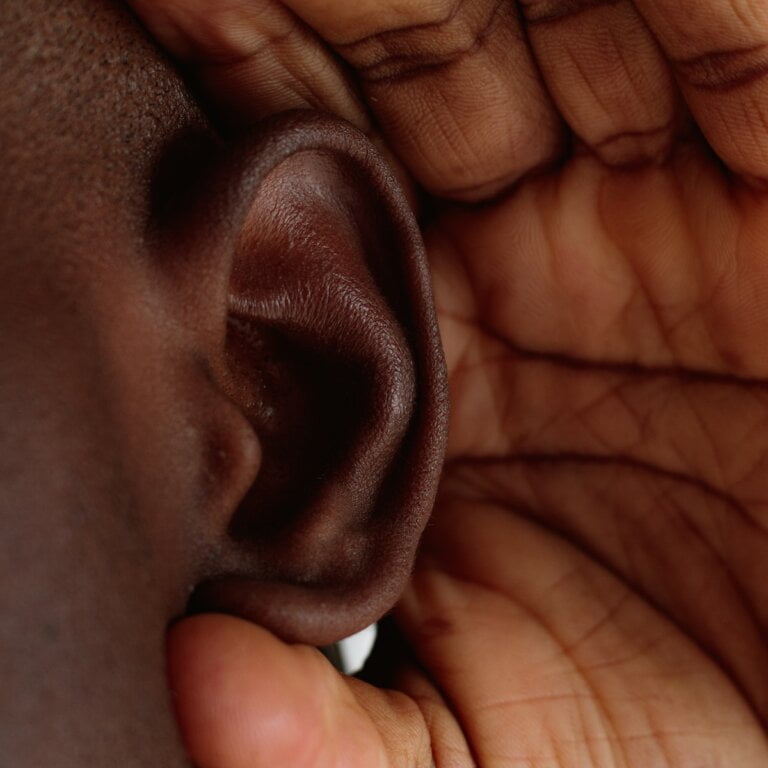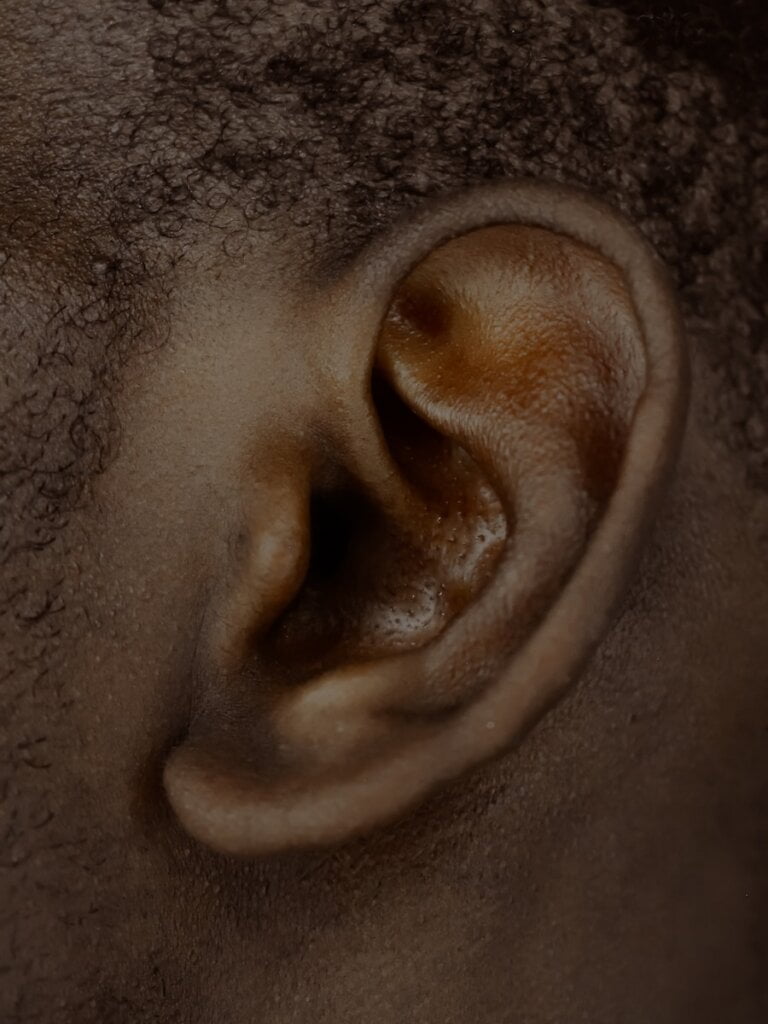Feeding Your Ears: Nutrients That Support Healthy Hearing
Our sense of hearing plays a vital role in our daily lives, allowing us to communicate, enjoy music, and be aware of our surroundings. Just like any other part of our body, our ears require proper nourishment to function optimally and maintain good hearing health. In this article, we will explore the nutrients that support healthy hearing and discuss their importance in maintaining auditory well-being.
Vitamin A
Vitamin A is an essential nutrient for maintaining healthy hearing. It plays a crucial role in the development and functioning of the auditory system. This powerful antioxidant helps protect the delicate structures of the inner ear from damage caused by free radicals. Additionally, vitamin A supports the production of the pigment rhodopsin, which is necessary for good vision and helps maintain proper balance, contributing to overall auditory health.
Good dietary sources of vitamin A include:
- Carrots: Carrots are not only rich in vitamin A but also provide beta-carotene, a precursor that the body converts into vitamin A. Including carrots in your diet can help support both your vision and hearing health.
- Sweet potatoes: Sweet potatoes are another excellent source of vitamin A. They are also packed with antioxidants and fiber, making them a nutritious choice for overall health.
- Spinach: Spinach is a leafy green vegetable that contains a significant amount of vitamin A. It is also rich in other nutrients, such as iron and folate, which are important for maintaining good hearing health.
- Kale: Kale is a nutrient-dense vegetable that offers a wide range of health benefits. It is an excellent source of vitamin A and other essential nutrients, including vitamin C and calcium.
- Apricots: Apricots are a delicious fruit that provides a good amount of vitamin A. They are also a great source of dietary fiber and contain other beneficial nutrients like vitamin C and potassium.
Including these foods in your diet can provide your body with the necessary vitamin A to support your hearing health. Try incorporating them into your meals and snacks to ensure you are getting an adequate amount of this important nutrient.
Omega-3 Fatty Acids
Omega-3 fatty acids are not only beneficial for heart health but also play a significant role in maintaining healthy hearing. These essential fats contribute to the health of the blood vessels, improving circulation to the inner ear. This, in turn, helps ensure the efficient delivery of oxygen and nutrients to the auditory system.
Sources of omega-3 fatty acids include:
- Fatty fish (such as salmon, tuna, and mackerel): Fatty fish are rich in omega-3 fatty acids, particularly eicosapentaenoic acid (EPA) and docosahexaenoic acid (DHA). These fatty acids have been shown to have anti-inflammatory properties and may help protect against age-related hearing loss.
- Flaxseeds: Flaxseeds are an excellent plant-based source of omega-3 fatty acids. They are also high in fiber and contain other beneficial compounds, such as lignans, which have antioxidant properties.
- Chia seeds: Chia seeds are another plant-based source of omega-3 fatty acids. They are also rich in fiber, protein, and various micronutrients, making them a nutritious addition to your diet.
- Walnuts: Walnuts are a good source of omega-3 fatty acids, as well as other beneficial compounds like antioxidants and polyphenols. They are also high in fiber and protein, making them a satisfying snack option.
Incorporating these foods into your diet can provide the necessary omega-3 fatty acids to support your hearing health. Consider adding them to your meals or enjoying them as snacks to reap their benefits.
Magnesium
Magnesium is a mineral that is involved in various bodily functions, including maintaining healthy hearing. It plays a crucial role in preventing damage to the delicate hair cells in the inner ear, which are responsible for converting sound vibrations into electrical signals. Adequate levels of magnesium help protect these cells from noise-induced damage and age-related hearing loss.
Food sources rich in magnesium include:
- Almonds: Almonds are not only a tasty snack but also a great source of magnesium. They are also packed with other nutrients like vitamin E and fiber, making them a nutritious choice for overall health.
- Spinach: Spinach contains a good amount of magnesium, along with other important nutrients like iron and vitamin C. Including spinach in your diet can help support both your hearing and overall well-being.
- Cashews: Cashews are another nut that provides a decent amount of magnesium. They are also a good source of healthy fats and protein, making them a satisfying and nutritious snack.
- Avocado: Avocado is a unique fruit that is rich in healthy fats, fiber, and various vitamins and minerals, including magnesium. It is a versatile ingredient that can be enjoyed in various dishes.
- Bananas: Bananas are not only a convenient and delicious snack but also a good source of magnesium. They are also high in potassium, which is important for maintaining healthy blood pressure levels.
Including these magnesium-rich foods in your diet can help support your hearing health. Try incorporating them into your meals and snacks to ensure you are getting an adequate amount of this essential mineral.
Vitamin C
Vitamin C is a powerful antioxidant that helps protect the body from oxidative stress. It plays a significant role in maintaining the health of the delicate blood vessels in the inner ear. These blood vessels supply oxygen and essential nutrients to the auditory system, and their optimal functioning is essential for good hearing health.
Good sources of vitamin C include:
- Citrus fruits (such as oranges, lemons, and grapefruits): Citrus fruits are well-known for their high vitamin C content. They are also rich in other beneficial compounds like fiber and various antioxidants.
- Berries (strawberries, blueberries, raspberries): Berries are not only delicious but also packed with vitamin C and other antioxidants. They are low in calories and high in fiber, making them a healthy choice for supporting your hearing health.
- Kiwi: Kiwi is a tropical fruit that provides a good amount of vitamin C. It is also rich in other nutrients like fiber and potassium, making it a nutritious addition to your diet.
- Bell peppers: Bell peppers, especially the red and yellow varieties, are excellent sources of vitamin C. They are also high in other antioxidants and have a crunchy texture that adds a refreshing element to your meals.
- Broccoli: Broccoli is a cruciferous vegetable that contains a significant amount of vitamin C. It is also rich in other important nutrients like fiber, vitamin K, and folate.
Including these vitamin C-rich foods in your diet can help support your hearing health. Consider incorporating them into your meals, snacks, or even smoothies to ensure you are getting an adequate amount of this essential vitamin.
Zinc
Zinc is a mineral that is involved in numerous physiological processes, including supporting the immune system and maintaining healthy hearing. It helps to regulate the production of proteins and DNA within the auditory system, promoting the proper functioning of the ear.
Food sources rich in zinc include:
- Oysters: Oysters are one of the best food sources of zinc. They are also a good source of other nutrients like protein and vitamin B12, making them a nutritious choice for overall health.
- Beef: Beef, particularly lean cuts, is a good source of zinc. It is also rich in high-quality protein and other important nutrients like iron and vitamin B12.
- Lamb: Lamb is another meat that provides a decent amount of zinc. It is also a good source of protein and contains various vitamins and minerals.
- Pumpkin seeds: Pumpkin seeds are a plant-based source of zinc. They are also high in other beneficial nutrients like fiber, healthy fats, and antioxidants.
- Chickpeas: Chickpeas, also known as garbanzo beans, are a legume that offers a good amount of zinc. They are also high in protein and fiber, making them a nutritious addition to your diet.
Incorporating these zinc-rich foods into your diet can contribute to maintaining healthy hearing. Try including them in your meals or snacks to ensure you are getting an adequate amount of this essential mineral.
B Vitamins
B vitamins, particularly B12, B6, and folic acid (B9), are essential for maintaining healthy nerves and blood vessels in the inner ear. They play a crucial role in the transmission of sound signals from the ear to the brain and help protect against age-related hearing loss.
Food sources rich in B vitamins include:
- Fish: Fish, especially fatty fish like salmon and tuna, are excellent sources of B vitamins. They are also rich in omega-3 fatty acids, making them a nutritious choice for both hearing and heart health.
- Poultry (chicken, turkey): Poultry is another good source of B vitamins, particularly vitamin B6. It is also a lean source of protein and contains other important nutrients like selenium and zinc.
- Leafy greens (spinach, kale): Leafy greens are not only rich in vitamin A and magnesium but also provide a good amount of B vitamins. They are low in calories and high in fiber, making them a healthy addition to your diet.
- Beans and legumes: Beans and legumes, such as lentils and black beans, are excellent plant-based sources of B vitamins. They are also high in fiber and protein, making them a nutritious choice for overall health.
- Fortified cereals: Some cereals are fortified with B vitamins, including B12 and folic acid. These cereals can be a convenient way to ensure you are getting an adequate amount of these essential nutrients.
Including these B vitamin-rich foods in your diet can support your hearing health. Consider incorporating them into your meals and snacks to ensure you are getting an adequate amount of these essential vitamins.
Conclusion
Incorporating a variety of nutrient-rich foods into your diet is essential for maintaining healthy hearing. Vitamins A, C, and B, along with minerals like magnesium and zinc, play vital roles in supporting the auditory system’s functioning and protecting it from damage. Including foods such as carrots, spinach, citrus fruits, fatty fish, and nuts can provide your body with the necessary nutrients to support your hearing health.
Remember, a well-balanced diet, along with regular check-ups with an audiologist, can contribute to preserving your auditory well-being and enjoying the sounds of life to their fullest.
- What role does Vitamin A play in maintaining healthy hearing?
- Vitamin A plays a crucial role in the development and functioning of the auditory system. It protects the inner ear from damage caused by free radicals and supports the production of the pigment rhodopsin, contributing to overall auditory health.
- How can Omega-3 fatty acids support healthy hearing?
- Omega-3 fatty acids improve circulation to the inner ear, ensuring efficient delivery of oxygen and nutrients. They also have anti-inflammatory properties and may help protect against age-related hearing loss.
- What is the importance of magnesium in maintaining healthy hearing?
- Magnesium helps prevent damage to the delicate hair cells in the inner ear, which convert sound vibrations into electrical signals. Adequate levels of magnesium protect these cells from noise-induced damage and age-related hearing loss.
- How does Vitamin C contribute to maintaining good hearing health?
- Vitamin C is a powerful antioxidant that protects the blood vessels in the inner ear. Optimal functioning of these blood vessels is essential for delivering oxygen and nutrients to the auditory system, supporting good hearing health.







